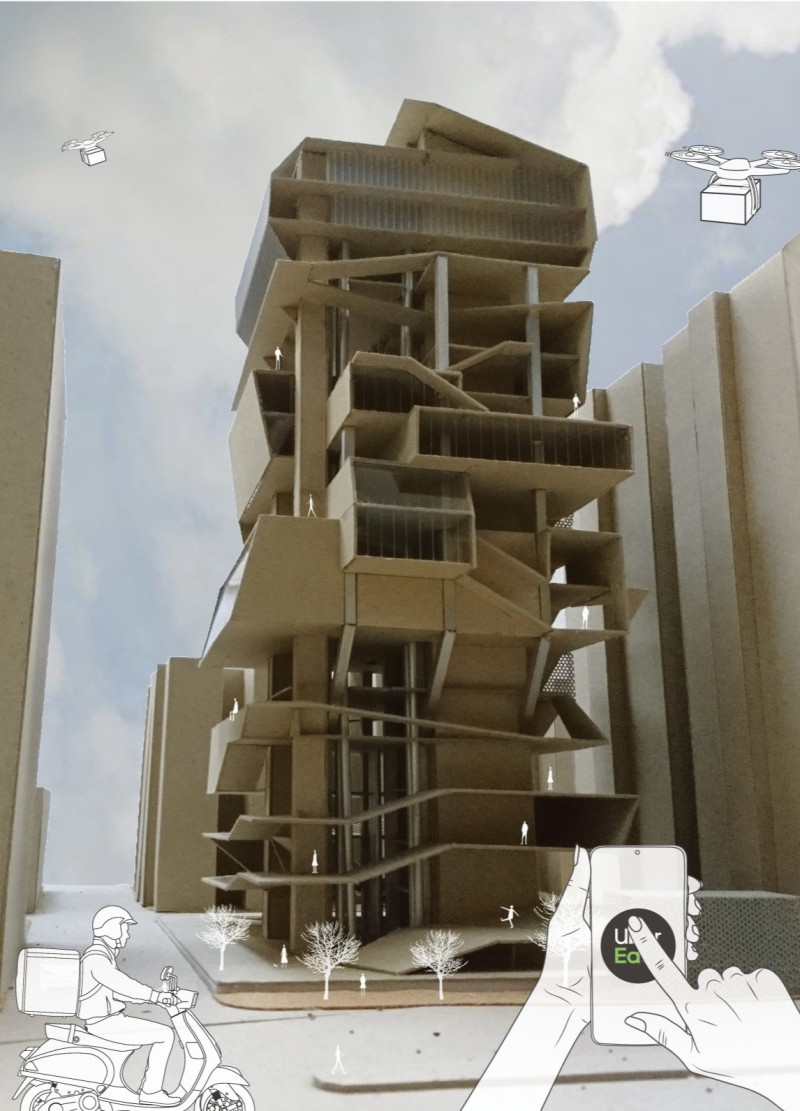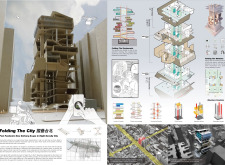5 key facts about this project
Innovative Spatial Organization and Efficiency
"Folding The City" employs a modular approach in its design, characterized by interwoven volumes conducive to varied functions. Each module serves a specific purpose, whether for dining, office work, or market activity. The vertical arrangement of these modules enhances operational efficiency, allowing for direct transportation of goods and services through strategically placed elevators. This configuration minimizes travel time and maximizes connectivity within the structure, addressing the needs of residents and businesses alike.
The design emphasizes accessibility, ensuring that movement through the building accommodates diverse user needs. Enhanced pedestrian pathways and the thoughtful placement of elevators facilitate smooth circulation, making the structure user-friendly.
Integrative Technology and Environmental Consideration
The incorporation of advanced technologies is a key feature of "Folding The City." The project envisions the use of drone delivery systems, which streamline logistics and contribute to a more efficient urban ecosystem. This focus on technological integration demonstrates a pragmatic response to modern urban living and the need for innovation in service delivery.
Environmental considerations are also integral to the design. The project incorporates green spaces within its structure to improve air quality and provide residents with areas for relaxation. The potential for sustainable practices, such as solar energy utilization and rainwater harvesting, further underscores a commitment to minimizing the ecological footprint of urban developments.
The design of "Folding The City" distinguishes itself through its thoughtful approach to urban challenges, emphasizing efficiency, accessibility, and sustainability. It serves as a contemporary model for future architectural projects aimed at enhancing urban livability amid evolving demands.
To gain deeper insights into the project, including architectural plans, architectural sections, and architectural ideas, readers are encouraged to explore the full presentation of "Folding The City."























